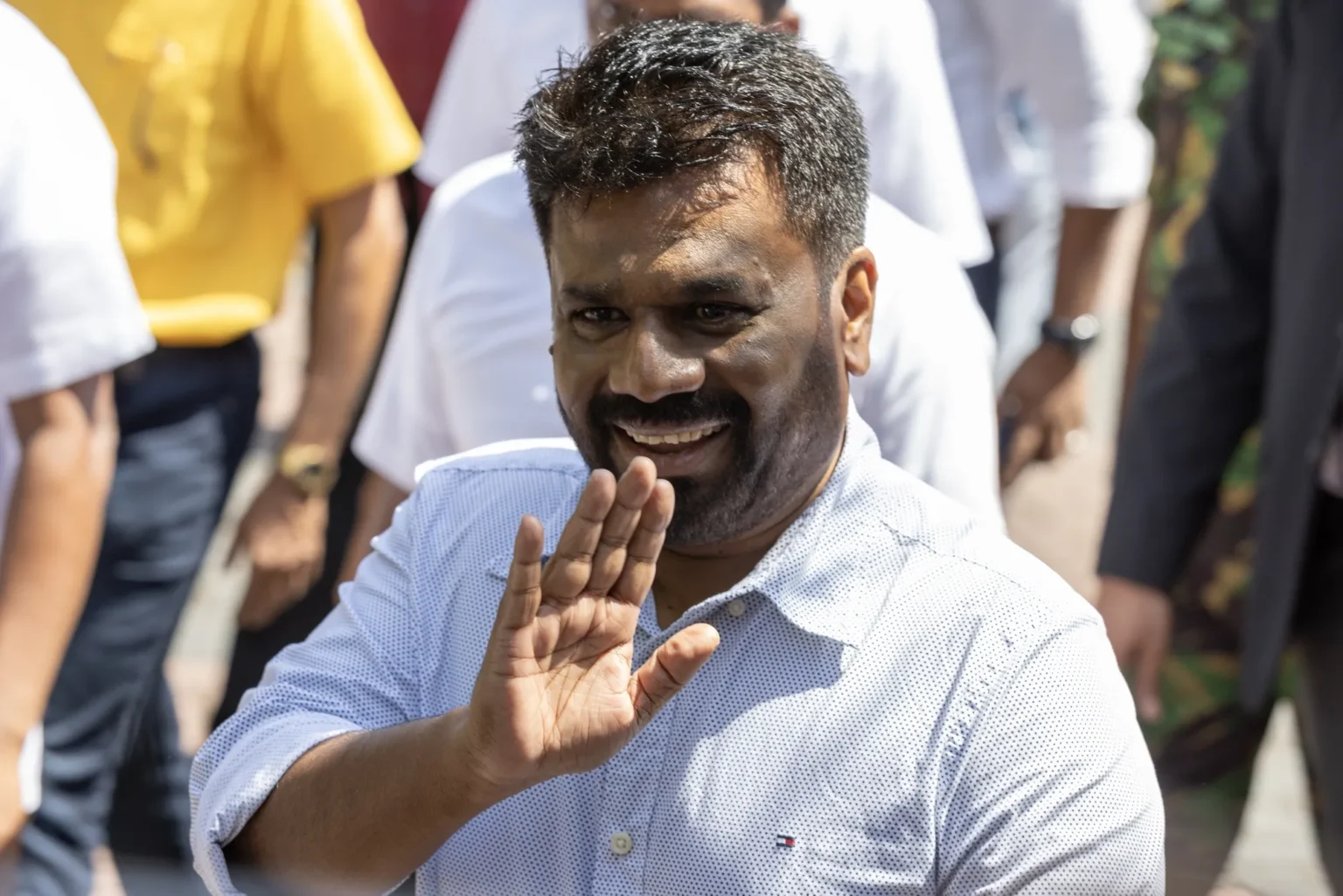Sri Lanka elected Marxist-opinionated Anura Kumara Dissanayake as its new president on Sunday, putting faith in the political figure’s pledge that he will fight corruption and bolster a fragile economic recovery following its worst financial crisis in decades.
Dissanayake, who does not possess political lineage like some of his rivals in the presidential election, led from start to finish during the counting of ballots, knocking out incumbent President Ranil Wickremesinghe and opposition leader Sajith Premadasa to become Sri Lanka’s 10th president.
Sri Lanka’s president-elect on Sunday invited his compatriots to help him “rewrite” history in the cash-strapped island nation after winning a vote colored by discontent over an unprecedented financial crisis.
Dissanayake, the once-fringe leader, whose party won less than 4% of the vote in parliamentary elections four years ago, saw a surge of support as the economic meltdown forced widespread hardships upon Sri Lankans.
“The dream we have nurtured for centuries is finally coming true,” he said shortly after the announcement.
“This victory belongs to all of us,” he added. “Millions of eyes filled with hope and expectation push us forward, and together, we stand ready to rewrite Sri Lankan history.”
Outgoing President Wickremesinghe — who took office at the peak of the 2022 economic collapse and imposed tough austerity policies per the terms of an IMF bailout — was a distant third in the contest with 17% of the vote.
“History will judge my efforts, but I can confidently say that I did my best to stabilise the country during one of its darkest periods,” he said.
He congratulated Dissanayaka on the win and said he was “confident” the politician would “steer Sri Lanka on a path of continued growth and stability.”
Dissanayaka will be sworn in on Monday morning at the colonial-era President Secretariat in Colombo, election commission officials said.
Dissanayake polled 5.6 million or 42.3% of the votes. Premadasa was second at 32.8% after the first round of counting of ballots on Sunday.
It was the first time in Sri Lanka’s history that the presidential race was decided by a second round of counting after the top two candidates failed to win the mandatory 50% of votes to be declared winner.




